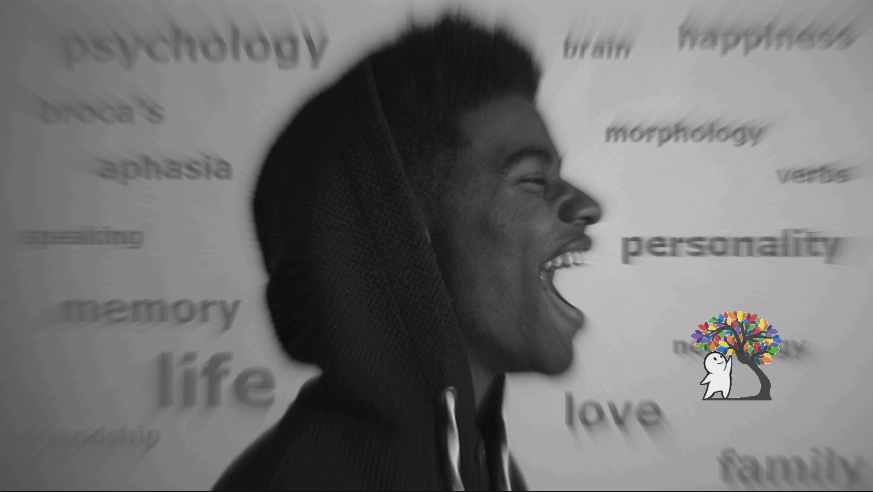Literally at a Loss for Words – 9 Facts About Broca’s Aphasia

Humans are social beings, which makes detailed communication extremely important to our well-being. However, more complex the communication, the more things can go wrong. What happens when the part of your brain that controls crucial parts of language and communication stops working like it should? Today, we will be learning about a neuropsychological condition called Broca’s aphasia.
What does Broca’s aphasia mean?
- This condition has a name that might puzzle you slightly. Broca’s area is a part of your brain at the frontal lobe (part) of the dominant half of your brain. For most people, this is the left half. This area of the brain is named after Pierre Paul Broca, who observed remarkable symptoms in his patients after this area of their brain had been damaged.

- These patients exibited sudden inability to speak. Broca’s area is often linked (both in theory and physically, by nerves) to Wernicke’s area, which also has language related functions. Broca’s area is mostly concerned with helping you produce words, whereas Wernicke’s area is concerned with understanding language.
What is your best personality trait? QUIZ - Aphasia comes from the Greak “phanai,” which means “to speak”. The “a-“ is a negative affix. In this way, Broca’s aphasia means “an inability to speak because of damage in this specific area of the brain”.
Where does Broca’s aphasia happen?
- As mentioned in the previous section, Broca’s aphasia is characterised by damage to Broca’s area. The part of the brain that specifically deals with producing language. It most often occurs as the result of a stroke, yet other causes are also common.
- Interestingly, Broca’s aphasia does not affect someone’s general intelligence. You may be able to imagine how frustrating it must be to have the same intelligence , but a general inability to verbalise your thoughts and feelings.
How common is Broca’s aphasia?
- The most common cause (but not the only one) is indeed damage following a stroke. About 25 to 40% of stroke survivors (Aphasia.org). It is slightly more common in people of higher ages.

- Broca’s aphasia occurs in people of all ages, races, nationality and genders. Yet, people of more advanced ages run a slightly higher risk. According to aphasia.org, about 180.000 Americans acquire Broca’s aphasia each year. Luckily, not all cases are equally severe.
What are the consequences and symptoms of Broca’s aphasia?
- Problems finding words, forming sentences and verbalising thoughts and feelings are some of the most common characteristics.

- Some people who have Broca’s aphasia also have some weakness or paralysis in their right leg and/or right arm. The majority of people is right handed. Since the brain is cross-wired, this means that the dominant half is often the left.This is because most people have a dominant left brain half, and Broca’s area is usually located in the dominant half of your brain.
So, now you know why some people are literally at a loss for words. Are there any other conditions you would like psych2go to delve into? Let us know in the comments or on facebook or tumblr.
More from us:
What is your best personality trait? QUIZ
11 sleeping tips for people with anxiety
Sources Broca’s Aphasia
https://www.aphasia.org/aphasia-resources/wernickes-aphasia/
https://understandingaphasia.wordpress.com/neurology-and-causes-of-aphasia/



question if anyone knows. how does Broca’s aphasia interact with sign language? is it easier for someone with Broca’s aphasia to use sign language to communicate rather than speech? or is it just as hard?
MY mom had this, blood clot went to brain. Basically she relearn the language and vocabulary, only gained 30% of her capability, which is a lot but still frustating. I do hope other people do better. Answer to your question if sign language will help, the answer is no. Basically relearn everything in calm condition, anxiousness adds tension to learning.
Sad part is she points something, name differently, but declined the appropriate name of the object, after numerous attempt, if lucky, she will come to realize the name of the object, name association of objects failing. Most common thing she say is, “uhmmmm… never mind”.
Please understand my reluctancy, my heart was totally broken for about 10 years. She had aphasia, since 2004 passed away on 2012, sending hugs to people around her in any way she can.